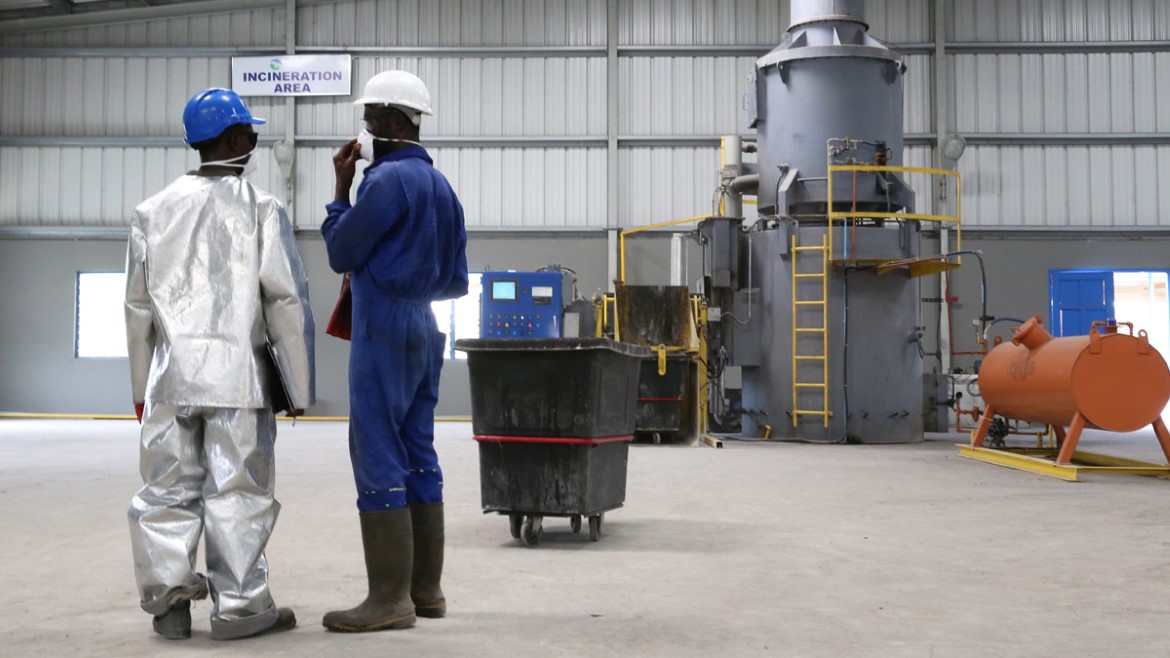The Oil for Development programme in Ghana
Ghana sought assistance early on from Norway and other partners, with the aim of managing these natural resources well.
The aim is to enhance the legal framework and public sector capacity to avoid the ‘resource curse’ and secure inclusive growth from petroleum revenues.
Ghana has been a partner to the OfD programme since 2007 and now shares its expertise with other African countries that are embarking on oil and gas production.
In 2019, Ghana produced oil and gas from three offshore fields. 2019 was the final year of the five-year agreements for the Resource Management and Environmental Management components. A near-end-review informed the decision to go ahead and plan a new three-year programme.
A three-year agreement on Petroleum Revenue Management has been in place since 2018.
Key achievements of programme activities
Enhanced legal and regulatory framework
- The environmental policy for the oil and gas sector was finalised through a series of stakeholder validations and expert reviews and is expected to be approved by Parliament in 2020.
- The Regulation for pollution control from petroleum exploration and exploitation was finalised and submitted to the Attorney General’s Office.
- An Operations Management Agreement between the Ministry of Finance and Bank of Ghana to govern the management of the Ghana Petroleum Funds was drafted. Insights into broader governance aspects of revenue and fund management as well as input to the draft were provided by experts with a background from petroleum fund management in Norway and other countries.
Increased institutional capacity
- The Strategic Environmental Assessment (SEA) for the onshore Voltain basin was finalised. The wideranging process, supported through the Norwegian Environment Agency, covered the period 2015–2019. The scenario analysis outlines issues to be addressed in order to protect the natural resources that people depend on for their livelihoods, reduce risks including user conflicts, and allow for transparency.
- Climate mitigation and monitoring, reporting and verification of greenhouse gas emissions from the petroleum sector in Ghana were addressed in capacity development efforts organised by the Norwegian Environment Agency.
- Staff at the Environmental Protection Agency learned how to use an online mail registration system to track mail received and monitor file movement within the Agency. The system is a necessary step towards an online permitting process system.
- The macroeconomic model used by the Ministry of Finance has been adapted to facilitate analysis of how the petroleum sector impacts the Ghanaian economy. Together with Statistics Norway, a dedicated model group updated the model to ensure relevance, developed a ‘drop in oil price’ scenario and made the tool accessible to senior staff and management.
- Staff at the Bank of Ghana’s petroleum funds secretariat were trained in various issues related to operational fund management.
- The Petroleum Commission continued to develop highly specialised skills in metering petroleum production for fiscal purposes, established a department for metering, and planned and conducted its second industry audit in this field. The Norwegian Petroleum Directorate supported the work and commented on the audit report for further learning.
- The Petroleum Commission has been assisted by Petroleum Safety Authority Norway in audit methodology and development of safety regulations and guidelines. Specific audits have been carried out with projects and activities where the competence on auditing have been practiced and the Safety regulations have been used.
- In preparation for the first open licensing round, the Petroleum Commission underwent training in how to conduct such processes as well as in geology to prepare for application evaluation. There was however no Norwegian involvement during the actual licensing round.
-
Ghana Revenue Authority received assistance in tax audits and tax administration including transfer pricing and development of a Petroleum Audit Manual.
-
The Petroleum Commission established a National Data Repository to store digital data. The Norwegian Petroleum Directorate provided process support and shared experience on how to secure and use the Government’s data.
Increased transparency and accountability
- Ghana Statistical Service released statistics on investments in the Ghanaian oil and gas industry for the first time ever, combining the efforts to produce statistics for the purpose of modelling and policymaking and disseminating them publicly free of charge.
- Ghanaian news outlets such as Goldstreet and Joy News produced stories about petroleum sector governance after journalists and editors attended events on the interpretation of extractive data and revenue management organised by the Natural Resource Governance Institute.
- To hold authorities accountable for the spending of oil money, Oxfam conducted a value-for-money analysis and assessed the resulting change in policy. Through the citizen-driven Shama model, Oxfam worked with local government officials to facilitate their understanding of national to district revenue transfers, to support pro-poor expenditures and participation.

